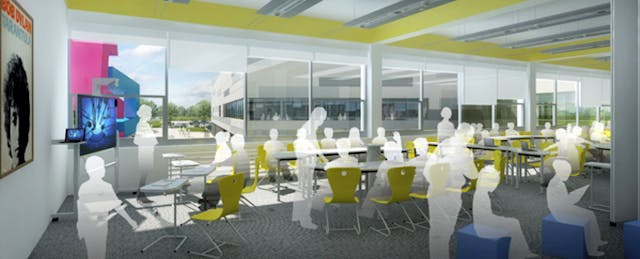Five school districts in the Silicon Valley area may be embarking on a tremendous experiment in education with the creation of a new nonprofit called Silicon Schools Fund. Brian Greenberg, former principal and teacher with both public and charter schools, said this week he has raised about half of $25 million to start up to 25 "blended learning" schools in the region.
"The current "factory model" of education isn't serving teachers or students," says Greenberg, who has worked as a teacher, principal and chief academic officer in organizations including Envision Schools, Leadership Public Schools, and the Los Angeles Unified School District. "We feel an urgent need in the country to launch new school models."
Board members for the nonprofit Silicon School Fund in addition to Greenberg include Michael B. Horn, who runs the Innosight Institute and produced a detailed report on blended school models; Ted Mitchell, who leads the NewSchools Venture Fund; philanthropist John Fisher, who also chairs the KIPP Foundation and has contributed the "catalytic" funding, and Sal Khan.
Greenberg says that Khan's role does not signal that every school will use a "flipped" approach. Instead, he hopes to see a diversity of approaches. "We don't think that every school will be a laboratory of new tools but our schools will be laboratories of new education approaches that use technology."
What he does hope to see are "edupreneurial" teams committed to exploring new approaches, incorporating both traditional educators and those with non-traditional backgrounds. As an example, he pointed to John Danner, founder of Rocketship Education, who had both worked with schools and been CEO of an Internet advertising firm before starting Rocketship.
The Silicon Schools Fund aims to provide grants of approximately $700,000 to the fledgling schools over four years to get them started. But all programs will be designed to survive on the approximate $7,000 per student per year provided by the state of California, Greenberg said. School leaders will decide on their education approach, including how much--or how little--technology their programs need.
Greenberg says he'll start accepting applications for new schools in November and expects to make the first awards in late January. Subsequent applications will be reviewed on a rolling basis until the program is supporting about 25 schools.
"We hope to show the potential of blended learning to all types of K-12 schools," including traditional public schools, independent programs such as parochial schools and charters, he says. By creating a cluster of schools, Greenberg hopes to become a showcase that educators all over the country will visit. "The Bay Area is the right place to do this," he declares. "We want to lower the barriers to innovation on new school models."


